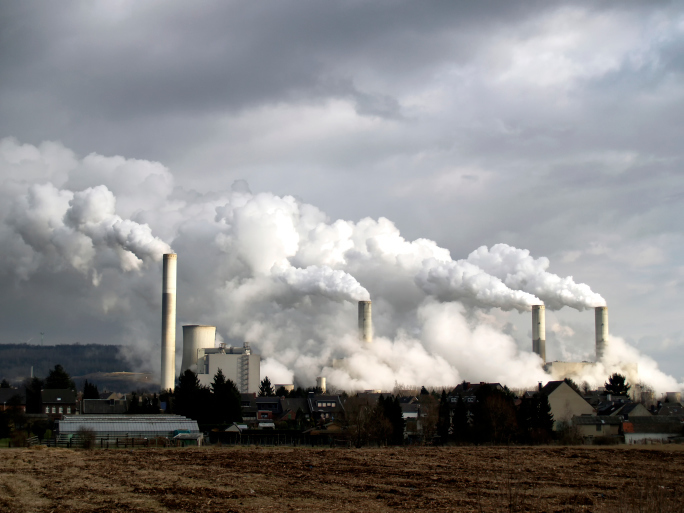The U.S. Supreme Court (SCOTUS) issued a stay on the Obama administration’s Clean Power Plan (CPP) rule in a decision issued on February 9, halting efforts by the Obama administration to impose costly regulations on the nation’s energy industry until a final ruling on the legality of CPP can be delivered.
The SCOTUS ruling is the result of multiple legal efforts made by 27 states and dozens of business, labor, consumer, and public-interest groups who say CPP is harmful for the nation’s economy and violates state authority.
SCOTUS’ highly unusual decision to put CPP on hold overturned a decision made by the DC Court of Appeals to allow the rule go forward. Although the appellate court’s panel did not stay the rules, it did offer the plaintiffs a partial victory by establishing an expedited hearing schedule for the case. The case is scheduled to begin June 2.
CPP forces states to cut carbon dioxide emissions from new and existing power plants by approximately 32 percent below 2005 levels by 2030.
Because any final court action on the rule is not expected to come until at least 2017, SCOTUS’ stay opens the door for the next president to withdraw CPP, modify it, or drop it entirely.
“The U.S. Supreme Court has dealt a decisive blow to the EPA’s climate regulations,” said Marc Morano, editor of the Committee for a Constructive Tomorrow’s Climate Depot. “The delay means the CPP is unlikely to be implemented before Obama leaves office, giving political leaders time to mobilize and ensure the EPA climate rules never see the light of day.”
MATS Example
In their request for the Supreme Court to intervene, the petitioners cited the harmful economic impact the Environmental Protection Agency’s (EPA) Mercury and Air Toxics Standards (MATS) had on the power industry before SCOTUS struck MATS down in June 2015. The petitioners used the significant problems caused by MATS as evidence for why CPP should not be implemented until courts have had a chance to fully review its legality.
Justice Antonin Scalia, writing for the majority in the decision to halt MATS, stated, “EPA strayed well beyond the bounds of reasonable interpretation in concluding that cost is not a factor relevant to the appropriateness of regulating power plants.”
In a public statement, West Virginia Attorney General Patrick Morrisey, lead plaintiff in the states’ challenge against CPP, described the Supreme Court’s action as a “historic and unprecedented victory” over EPA.
“We are thrilled the Supreme Court realized the rule’s immediate impact and froze its implementation, protecting workers and saving countless dollars as our fight against its legality continues,” Morrisey said in the statement.
“Our prayers were answered,” said Marita Noon, executive director of the Citizens Alliance for Responsible Energy. “The justices evidently looked at history and decided they didn’t want what happened with the Mercury and Air Toxics Standards to be repeated.
“The MATS decision came too late to make any real difference, resulting in the premature closure of numerous power plants, lost jobs, and higher electricity prices, but [SCOTUS’] swift and sound decision to block the CPP prevents a reoccurrence of that costly fiasco,” Noon said.
In a statement responding to SCOTUS’ action, Mike Duncan, president and CEO of the American Coalition for Clean Coal Electricity, said, “We are pleased the Supreme Court took this unprecedented step to protect the states from further economic harm while the courts are deciding whether the administration’s Power Plan is unlawful and unconstitutional.
“The stay is a signal the Supreme Court has serious concerns with [CPP],” Duncan said. “We’re optimistic the power plan will ultimately be rejected.”
Stay Critical to Prevent Damage
Duncan says SCOTUS’ decision prevents unnecessary economic harm.
“While the Supreme Court’s stay is welcome, the true fight still lies ahead,” said Duncan. “Absent the stay, we would see thousands of jobs unnecessarily lost and staggering, avoidable electricity cost increases—none of which would be relieved even [if] the court ultimately decides the rule is, in fact, illegal.”
Duncan and Noon agree the rule, if upheld, will result in an expensive, fundamental transformation of the electric power industry.
“This rule is the most expensive regulation ever placed on the electric sector and will wreak economic havoc across the country,” said Duncan. “Forty-one states will see double-digit increases in electricity prices, with 28 seeing increases of 20 percent or more.”
“The CPP aims to totally transform the way energy is generated, regulated, distributed, and used in America,” Noon said. “Such sweeping regulations shouldn’t move forward when more than half of the states oppose it.”
H. Sterling Burnett, Ph.D. ([email protected]) is managing editor of Environment & Climate News.





